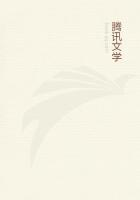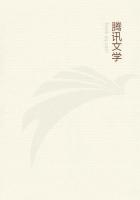The result is, as we have said, that this view, while on the one side identical with that of those who maintain that soul is a subtle kind of body, is on the other entangled in the absurdity peculiar to Democritus' way of describing the manner in which movement is originated by soul. For if the soul is present throughout the whole percipient body, there must, if the soul be a kind of body, be two bodies in the same place; and for those who call it a number, there must be many points at one point, or every body must have a soul, unless the soul be a different sort of number-other, that is, than the sum of the points existing in a body. Another consequence that follows is that the animal must be moved by its number precisely in the way that Democritus explained its being moved by his spherical psychic atoms. What difference does it make whether we speak of small spheres or of large units, or, quite simply, of units in movement? One way or another, the movements of the animal must be due to their movements. Hence those who combine movement and number in the same subject lay themselves open to these and many other similar absurdities. It is impossible not only that these characters should give the definition of soul-it is impossible that they should even be attributes of it. The point is clear if the attempt be made to start from this as the account of soul and explain from it the affections and actions of the soul, e.g. reasoning, sensation, pleasure, pain, &c. For, to repeat what we have said earlier, movement and number do not facilitate even conjecture about the derivative properties of soul.
Such are the three ways in which soul has traditionally been defined; one group of thinkers declared it to be that which is most originative of movement because it moves itself, another group to be the subtlest and most nearly incorporeal of all kinds of body. We have now sufficiently set forth the difficulties and inconsistencies to which these theories are exposed. It remains now to examine the doctrine that soul is composed of the elements.
The reason assigned for this doctrine is that thus the soul may perceive or come to know everything that is, but the theory necessarily involves itself in many impossibilities. Its upholders assume that like is known only by like, and imagine that by declaring the soul to be composed of the elements they succeed in identifying the soul with all the things it is capable of apprehending. But the elements are not the only things it knows; there are many others, or, more exactly, an infinite number of others, formed out of the elements. Let us admit that the soul knows or perceives the elements out of which each of these composites is made up; but by what means will it know or perceive the composite whole, e.g. what God, man, flesh, bone (or any other compound) is? For each is, not merely the elements of which it is composed, but those elements combined in a determinate mode or ratio, as Empedocles himself says of bone, The kindly Earth in its broad-bosomed moulds Won of clear Water two parts out of eight, And four of Fire; and so white bones were formed.
Nothing, therefore, will be gained by the presence of the elements in the soul, unless there be also present there the various formulae of proportion and the various compositions in accordance with them.
Each element will indeed know its fellow outside, but there will be no knowledge of bone or man, unless they too are present in the constitution of the soul. The impossibility of this needs no pointing out; for who would suggest that stone or man could enter into the constitution of the soul? The same applies to 'the good' and 'the not-good', and so on.
Further, the word 'is' has many meanings: it may be used of a 'this' or substance, or of a quantum, or of a quale, or of any other of the kinds of predicates we have distinguished. Does the soul consist of all of these or not? It does not appear that all have common elements.
Is the soul formed out of those elements alone which enter into substances? so how will it be able to know each of the other kinds of thing? Will it be said that each kind of thing has elements or principles of its own, and that the soul is formed out of the whole of these? In that case, the soul must be a quantum and a quale and a substance. But all that can be made out of the elements of a quantum is a quantum, not a substance. These (and others like them) are the consequences of the view that the soul is composed of all the elements.
It is absurd, also, to say both (a) that like is not capable of being affected by like, and (b) that like is perceived or known by like, for perceiving, and also both thinking and knowing, are, on their own assumption, ways of being affected or moved.
There are many puzzles and difficulties raised by saying, as Empedocles does, that each set of things is known by means of its corporeal elements and by reference to something in soul which is like them, and additional testimony is furnished by this new consideration; for all the parts of the animal body which consist wholly of earth such as bones, sinews, and hair seem to be wholly insensitive and consequently not perceptive even of objects earthy like themselves, as they ought to have been.
Further, each of the principles will have far more ignorance than knowledge, for though each of them will know one thing, there will be many of which it will be ignorant. Empedocles at any rate must conclude that his God is the least intelligent of all beings, for of him alone is it true that there is one thing, Strife, which he does not know, while there is nothing which mortal beings do not know, for ere is nothing which does not enter into their composition.
In general, we may ask, Why has not everything a soul, since everything either is an element, or is formed out of one or several or all of the elements? Each must certainly know one or several or all.

